Echoes of Weimar in American Cold War Politics: An Interview with Daniel Bessner
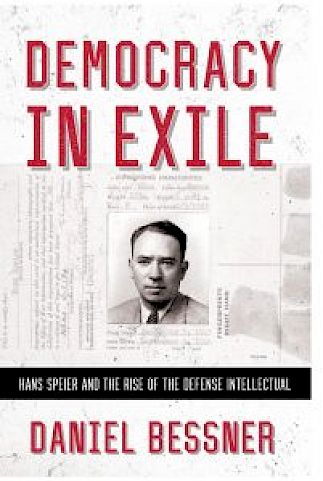
In Democracy in Exile: Hans Speier and the Rise of the Defense Intellectual (Cornell University Press, 2018), Daniel Bessner tells the story of a previously little-known German sociologist who changed the way we think about the role of intellectuals in American public policy-making. Born into a conservative Lutheran family, Hans Speier turned to Marxism during the early Weimar years. As a student of Karl Mannheim, he spent the 1920s trying to implement a social democratic version of his teacher's political-pedagogical vision. To this end, Speier worked as a lecturer at the Hochschule für Politik, a college of worker's education. With the rise of Nazism, Speier's infatuation with Marxist theory, socialism, and the people waned. Democracy, after all, had put Hitler in charge. When Speier moved to America, he brought the trauma of the crisis of Weimar with him.
For Speier, this crisis was the result of excessive trust placed in an inherently untrustworthy demos. He consequently advocated expert governance as an alternative to broad-based popular rule. Calling on émigré intellectuals to actively involve themselves in American politics, Speier himself went on to occupy important positions during World War II as part of the Foreign Broadcast Intelligence Service and the Office of War Information. He subsequently moved to the head of the newly founded Social Science Division at the Air Force-funded RAND Corporation. From there he advised the U.S. government on questions of propaganda and psychological warfare. To defend democracy against both Nazis and Soviets, Speier argued, the United States had to become more authoritarian. In this way, Speier's story traces the rise of the American "defense intellectual" as well as the emergence of what has come to be known as the U.S. "military-intellectual complex."
--Katharina Isabel Schmidt
KATHARINA ISABEL SCHMIDT: What was the puzzle you set out to solve in Democracy in Exile, and how exactly did it lead you to Speier?
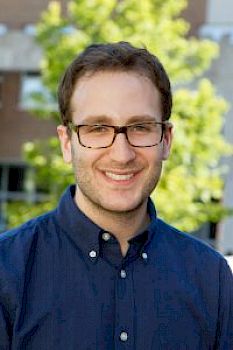
DANIEL BESSNER: After college I applied to graduate school at Duke, wanting to study modern European intellectual history with Malachi Hacohen. However, in my last semester of college—the spring of 2006—during the height of the Iraq War, I had interned at the Council on Foreign Relations in New York City. What had struck me during my time there was just how many people with PhDs seemed to exert a considerable influence on foreign policy decision-making. This led me to wonder: where did this figure of what in the book I call the "defense intellectual" come from? Speier, in particular, caught my eye in this context. I first came across him in Claus-Dieter Krohn's classic Intellectuals in Exile: Refugee Scholars and the New School for Social Research (Amherst University Press, 1993) and was taken aback. How could Speier, who had been a committed Marxist in his early years, come to play such an integral part in the American Cold War state? How could someone affiliated with the New School's University in Exile during the 1930s go on to become one of the most important people working for the RAND Corporation throughout the 1940s, 1950s, and 1960s? Speier not only allowed me to combine my interest in European intellectual history and the history of U.S. foreign relations. To me, he was also central to understanding the rise of the "defense intellectual" as part of a transatlantic process that came to define American foreign policy-making.
SCHMIDT: You refer to Speier as a "lister," as someone who appears on lists of midcentury German-speaking émigré-intellectuals but who has not yet been made the subject of serious scholarly inquiry. Why should we care about him now? Is there something about our present moment that makes Speier a particularly interesting figure to think with?
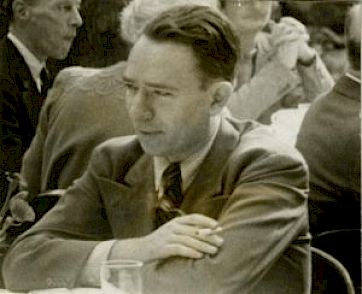
BESSNER: As far as I could tell, most of the English-language literature on German-speaking émigré intellectuals had, until at least the 1990s, focused on the various members of the Frankfurt School, Leo Strauss, and Hannah Arendt. This, of course, has to do with post-1968 ideological critiques of power. Most intellectual historians, at the time, simply did not care about—or perhaps, were wary of—people with a more active interest in policy-making. Speier allowed me to fill the historiographical gap this left open. There is also something about Speier that gives him particular salience for our present moment. Speier was a scholar who consciously chose to align himself with those institutions of the American Cold War state that were most likely to help implement his particular vision of democracy and international order. To the extent that effecting real change in the world is what contemporary progressives are after, they would do well to take seriously Speier's ability to use ideas to change the world from within state and para-state institutions. However much we might disagree with Speier's substantive visions, his willingness to combine scholarly research and policy-making can serve as a model for us.
SCHMIDT: I want to come back to the kinds of questions Speier raises about the role of the public intellectual, both as part of the American Cold War state and in the context of contemporary politics. First, though, I want to know more about how Speier fits into established literatures on German-speaking émigré intellectuals. Do you want your readers to think of him as exemplary or unique?
BESSNER: Like most human beings, Speier was both. He happened to be Karl Mannheim's first graduate student, which equipped him with a certain degree of singularity. He was also the youngest founding member of the University in Exile, which meant that his postwar career lasted longer, and was more successful, than the careers of similarly situated exile scholars. In addition to RAND, Speier went on to occupy extremely influential roles as part of the Foreign Broadcast Intelligence Service and the Office of War Information. At the same time, Speier was only one of many European émigrés who joined the American Cold War state—people like Nathan Leites, Paul Kecskemeti, Olaf Helmer, and dozens if not hundreds of others. Their stories remain to be told.
SCHMIDT: It's interesting to compare Speier's trajectory in the U.S. to that of other exiles. It struck me how smoothly he assimilated into American intellectual life. Do you have a sense of why that was?
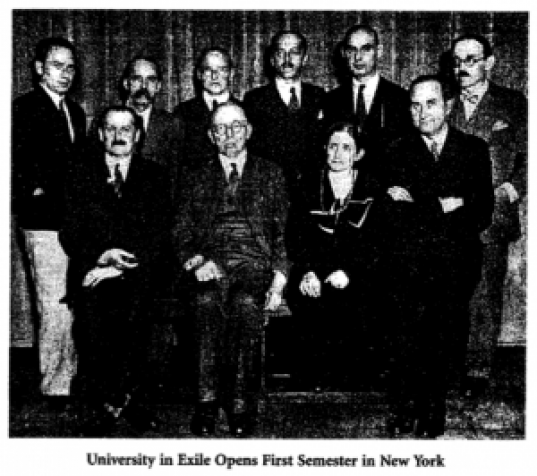
BESSNER: Speier did assimilate into American intellectual life rather quickly. It certainly helped that he was a sociologist. It's important to bear in mind that American sociology, beginning in the late 1920s and 1930s, found itself in crisis due to its perceived inability to respond adequately to the Great Depression. People were actively looking for new ideas from which to draw inspiration and German-speaking émigrés like Speier were welcomed by many American scholars with open arms. As I describe at length in the book, Speier was steeped in central European Jewish intellectual traditions and had many Jewish teachers, colleagues, and friends; most importantly, he was married to a Jewish pediatrician. But he was not himself Jewish, which helped his integration into American policy circles. After all, those circles were at the time still overwhelmingly dominated by white, Anglo-Saxon Protestants. That said, Speier was particularly adept at using these situational factors to his advantage. As soon as he got to the U.S., he consciously began constructing academic networks with prominent or soon-to-be prominent social scientists like Edward Shils, Gabriel Almond, and Harold Lasswell at the University of Chicago. Individual personality traits likely played a part as well. Speier was ambitious. He was also a charmer and people seem to have really liked him.
SCHMIDT: What were some of the limits of Speier's integration into American intellectual life? What do these limits tell us about the role of identity in transnational history and history-writing?
BESSNER: The limits of Speier's integration and success were ultimately structural. Speier would not have gotten as far as he did had he not played into powerful American interests at the time. His colleagues genuinely valued him for his embodiment of German sociology and a German intellectual tradition they greatly respected. On occasion, though, they did refer to him as "the old Prussian" behind his back. In terms of his own national and cultural identity, Speier went through stages. Until at least 1939 he very much considered himself a German, albeit a German working in support of U.S.—what he would have considered to be global—interests. This changed with the outbreak of World War II, when Speier renounced any affiliation with Germany. He embraced the U.S. as the place that had taken him, his family, and many of his friends in. The enormously influential positions he occupied as part of the U.S. wartime government further helped him endorse the notion that America was the arbiter, defender, and ultimately promoter of Western civilization. It was not until the 1970s and 1980s, towards the end of his life, that he re-embraced his German heritage.
SCHMIDT: Your first chapter, titled "Masses and Marxism in Weimar Germany," traces Speier's intellectual coming of age during the 1920s. To what extent is your story not only a contribution to American Cold War history but also to the history of Weimar Germany?
BESSNER: Though I made a strategic choice to primarily engage with English-language literature on American Cold War history, my book contributes to Weimar historiography in important ways. Speier's case, after all, tells a story that is not often told about expert knowledge, political idealism, and institution-building in the German 1920s. The connections I trace between Speier and Carl Schmitt further challenge the liberal-conservative dualism characteristic of much of Weimar historiography. Perhaps most importantly, Speier's story also speaks to the growing interest in the historical memory of Weimar as well as in its intellectual legacy far beyond Germany's borders. To me, Speier's story underlines how much of twentieth-century liberalism—not only in Germany but in the United States as well—is organized around thinking through the origins and consequences of the Weimar Republic's collapse.
SCHMIDT: Even after Speier leaves Germany for the U.S., Weimar remains central to your story. What exactly does "Weimar" mean, to Speier and to you? Is it a place, a political system, an experience, a theory of history, or something else altogether?
BESSNER: Weimar, both from the vantage point of 1933 as well as from the vantage point of 2018, is a metaphor for what can happen to democracy in a populist moment. Weimar's legacy, its real legacy in our current era, is that. Weimar proved to Speier that Marxist theory was wrong and that unrestrained democracy bore incalculable risks. It is this insight that he brought with him to the U.S., and it is this insight that he—and his generation—universalized. In that regard, Weimar also constitutes something like a theory of history. To those who adhere to it, the Weimar story illustrates that no matter how stable or just we believe a particular polity to be, Hitler, or some other ontological Schmittian enemy, can come out of nowhere and eradicate the whole system. The Hitler analogy in American public life, after all, is so powerful not only because of what actually happened under Hitler. It is as powerful as it is because of the fact that Hitler emerged from democratic structures.
SCHMIDT: Despite the centrality of Weimar, is there a place for the global 1920s in your story? To what extent does the Dewey-Lippman debate you discuss in some detail indicate that Americans had realized on their own that there were problems with democracy?
BESSNER: Of course, people on both sides of the Atlantic were responding to the challenges of democratic modernity, and especially liberal capitalist democratic modernity, in similar ways. Schmitt, Speier, and Lippman, for example, were very much interested in related problems. This shared transatlantic sensibility is another reason why Speier found it relatively easy to integrate himself into American public life. But Weimar is the only place in which the nightmare happened. And the fact that this nightmare happened only in Weimar gave the exiles a particular kind of epistemological authority they would not otherwise have had. There is certainly a case to be made for viewing the 1920s in a global perspective. But Weimar collapsed and the American republic didn't. This is a crucial difference.
SCHMIDT: I'm glad you bring up challenges of modernity. Was Weimar ultimately doomed to fail in the imagination of Speier and his fellow émigrés? Was there no room at all for acknowledging the Weimar Republic's many progressive features?
BESSNER: For most émigrés, remembering Weimar with anything other than trepidation was not a real possibility. When they looked back to Weimar, what they saw were not the great social welfare provisions, the progressive politics, or the grand coalitions of the 1920s. Instead, their memory of Weimar was shaped by the Depression, the street fighting between Nazis and communists, the anti-Semitism, and the Brüning dictatorship of the early 1930s, which eventually resulted in Hitler's appointment and seizure of power. For them, Weimar was a time of crisis and the most important lesson to be learned from the republic's history was that democracy is fragile. Importantly, this drives home the role of personal trauma in history, history-writing, and memory-making. That said, it is up to contemporary historians to recover aspects of Weimar that are appealing from our present perspective. For the first time in recent American history, for example, we are seeing the rise of an electorally viable socialist left. In this context it would certainly be instructive to look to 1920s Weimar as an important moment in which an avowedly Marxist-socialist party governed a Western country.
SCHMIDT: It does seem like much work remains to be done when it comes to recovering what was specifically "Weimarian" about Weimar. We also don't quite yet have a good understanding of just how ideologically fluid many of the ideas that came out of Weimar were. The work of Carl Schmitt, who plays a recurring role in your story, comes to mind in this context.
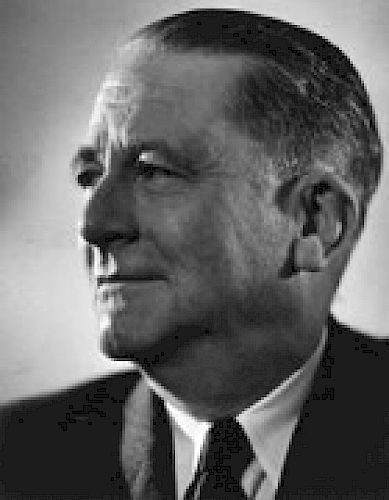
BESSNER: That strikes me as exactly right. As we move further and further away from viewing Weimar through a Cold War lens, we are going to see very clearly that many of the ideas that were traditionally traced back to reactionaries like Schmitt were, as a matter of fact, much more broadly held. I recently co-edited a volume with Nicolas Guilhot, titled The Decisionist Imagination: Sovereignty, Social Science, and Democracy in the Twentieth Century (Berghahn, forthcoming 2018). The point of the book is very much to show that there were not only right-wing but also liberal and left-wing decisionists. It is simply wrong to equate decisionism with Schmitt. Decisionism was and is a theory of politics that transcends ideological boundaries. It stands for a kind of politics that prioritizes the decisions of great leaders and elites over consensus-building and social movements. In that sense, Karl Mannheim, Hans Morgenthau, and many others were all decisionists. And Speier, ultimately, was a decisionist, too. Schmitt is not important because he is Schmitt, and it might be time to get over our collective fetish with this particular disgraced Nazi. Schmitt is important because he expressed an idea clearly that many people across the spectrum of Weimar politics subscribed to. Schmitt's skill, ultimately, was to say extremely complex things in one sentence where others would have needed a paragraph or more.
SCHMIDT: Your book ties in nicely with another recently published work, Udi Greenberg's The Weimar Century: German Émigrés and the Ideological Foundations of the Cold War (Princeton University Press, 2014). To what extent do you consider yourself to be engaged in the same project as Greenberg? How is your work different from his?
BESSNER: I most definitely view our works as complementary. What both Udi and I are trying to do is to broaden the purview of intellectual historians by expanding on the circle of German-speaking émigrés that are the subject of serious scholarly investigation. We are also both concerned with establishing a connection between the memory and experience of Weimar, on the one hand, and American Cold War politics, on the other. But there are differences, too. Most importantly, I am more interested than Udi in institution-building, and especially how transatlantic ideas about democracy and crisis were instantiated in the organizations of the U.S. national security state.
SCHMIDT: Institutions are clearly at the heart of your scholarly agenda. Your next project is titled The RAND Corporation: A History (under advance contract with Princeton University Press). Could you talk a little about this?

BESSNER: One of the most important methodological interventions I try to make in my work is to emphasize that institutions have intellectual histories and that intellectual histories are critical to understanding how institutions operate in the world. The intellectual history of institutions is an important subject that has not nearly received as much attention as it should have. We live in an institutional age; Americans govern ourselves and the world through institutions. So we need to understand the intellectual history of RAND as an institution if we want to understand how RAND was able to be so influential in a variety of issue areas, from nuclear strategy to domestic policing. This is one of the things I'm trying to do in my forthcoming book.
SCHMIDT: You and Udi Greenberg recently collaborated on a widely read piece called "The Weimar Analogy" (Jacobin, 17 December 2016). Do you stand by your argument that we should retire any and all references to Weimar for the purpose of contemporary analyses or have your views changed a year and a half into the Trump presidency?
BESSNER: Today I would probably soften the argument. I would no longer say that we should get rid of the "Weimar analogy," mainly because I don't think it's possible. What we should do instead is to use that analogy more responsibly. My fear is that the "Weimar analogy" is too often used to provoke anxieties in a way that prevents more serious investigation into the particular historical phenomena that led to the rise of Trump. We had a terrible problem with racism in this country under Obama, just as we do under Trump. We had enormous inequality under Obama, just as we do under Trump. We had mass- or hyper-incarceration under Obama, just as we do under Trump. We had deportations under Obama, just as we do under Trump. And we had drone strikes under Obama, just as we do under Trump. What we need is a true reckoning with the long-term developments that led to the 2016 election.
SCHMIDT: What are some of the differences you encountered between writing for an academic audience and writing for a popular audience? Did you feel any tension between your scholarly self and your public persona?
BESSNER: As I see it, people have multiple identities. I happen to exist in the world as both a professional historian and political person in my own right. And, of course, there are different norms, different standards of evidence that go along with these different identities. As a historian, I do not feel comfortable making normative claims, because as a historian my primary responsibility is to understand, not normatively evaluate, the past. None of that applies to my activities as a public person or political writer. Ultimately, I think that historians need to be a bit more conscious of the fact that we are able to wear different hats in different arenas and that if we, as political people, choose not to participate in shaping public and elite opinion, others will. Of course, many historians are already doing this. In general, we need to think much more consciously and carefully about the role and responsibility of public intellectuals, and about how these might change over time.
SCHMIDT: In "The Weimar Analogy," you and Udi Greenberg are critical of "militant democracy," a term coined by the émigré Karl Loewenstein but championed more broadly by manifold Weimar exiles, including Speier. What exactly do you find problematic about the idea for which it stands?
BESSNER: "Militant democracy" is a contradiction in terms. A democracy is only a democracy if it is supported and defended through non-militant means; otherwise it is democracy by coercion, and thus hardly democracy at all. Moreover, what the Cold War experience has shown is that "militant democracy" often leads to wanton cruelty abroad, as evidenced by the overthrow of democratic governments in Iran and Guatemala, the Vietnam War, support for the Chilean coup d'état, and, more recently, the invasions and interventions in Afghanistan, Iraq, Libya, and Syria. Instead of advocating militant democracy, intellectuals must instead think about how we can best defend democracy through engagement in public education and even policymaking. In my opinion, progressive intellectuals can play a critical role in this project. We can help enact progressive policies through participation in state, para-state, and nongovernmental institutions. Or we can work as political educators in a Deweyan sense.
SCHMIDT: To what extent was Speier aware of just how tragic the sacrifices he would have to make to salvage democracy were? Are such sacrifices, in your opinion, a necessary part of democratic governance?
BESSNER: Speier certainly felt that the sacrifices he made for democracy were tragic. That's why he tried to limit them in time, at least so long as nuclear warfare was not yet an option. But, of course, this raises more general questions about what rule by the people means and how much of it we are willing to give up in order to save democracy—or at least, the version of democratic capitalism that prevails in the United States. Works like Ira Katznelson's When Affirmative Action was White: An Untold History of Racial Inequality in America (W.W. Norton & Co., 2005) as well as his more recent Fear Itself: The New Deal and the Origins of Our Time (Liveright, 2013) have shown that even some of our most treasured liberal institutions are steeped in illiberal ideas and practices. And moreover, that they often had illiberal consequences. America is somewhat unique in that it is still nominally living under a constitution drafted in the late eighteenth century. In recent years, though, we have witnessed developments under this constitution that are truly problematic: the rise of minority rule, voting rights restrictions, and mass incarceration being among the most prominent. These go against fundamental democratic principles. In light of this, as well as the numerous ways the constitution historically has been used as a tool of oppression, it may well be time for Americans to reconsider the very structure of their polity, though it's not easy to say what that might look like. We don't, for example, want to have a constitutional convention shaped by Amazon, Academi, and Monsanto.
SCHMIDT: You have said a couple of times now that it is up to progressive intellectuals to change the world. But expert or elite governance has its own problems, not least those illustrated by the case of Speier.
BESSNER: Yes, exactly. Experts so often get things wrong. As intellectuals we value thinking deeply about a subject for many years, which we hope will grant us some degree of insight, wisdom, and judgment. But even studying something for a long time, as history has shown, can lead someone to advocate disastrous policies and programs. For instance, the Iraq War was to a significant degree an expert-driven war. The question, then, becomes how we can get the benefits of expertise while keeping its downsides at bay. In my opinion, an important, if not the only, means to do so is to promote a culture of accountability in which experts who support disastrous policies are not rewarded for them.
SCHMIDT: Can you give an example of what such a culture of accountability would look like in practice?
BESSNER: Think of Walt Rostow, who was an economic historian and defense intellectual who worked for MIT's Center for International Studies before becoming an important figure in both the Kennedy and Johnson Administrations. In particular, Rostow was a central advocate for America's deepening commitment in Vietnam. By the time Rostow left public service to return to academia, public and elite opinion had turned against the war and he was unable to obtain a position at the northeastern institutions in which he had spent his career. Instead, he spent the rest of his life at the University of Texas at Austin, a wonderful school that was nevertheless outside of Rostow's traditional intellectual orbit. Contrast this with what happened to Paul Wolfowitz, U.S. Deputy Secretary of Defense for George W. Bush and one of the major advocates for the Iraq War. When Wolfowitz retired from that position he went on to become President of the World Bank, from which he moved to the American Enterprise Institute, from which he moved straight into Jeb Bush's foreign policy team. Had Bush received the Republican nomination for the 2016 election—which, we might recall, many expected him to—Wolfowitz would have been one of his most important advisors, without ever having been held accountable for any of the things he did in the past.
SCHMIDT: How would we bring about such a culture of responsibility in American foreign policy-making circles?
BESSNER: The most important step would be to democratize American foreign policy-making. The executive, in recent years, has become far too strong. Ironically, this started under Franklin Delano Roosevelt, who issued over 3,500 executive orders. But those executive orders are problematic from the perspective of a democratic polity. What we need to do is to weaken the presidency and to democratize foreign policy-making. In this context, broadening access to currently classified information about what it is America is actually doing in the world will be of prime importance. Congress must also reassert itself and adopt a far more circumspect perspective about U.S. intervention abroad.
SCHMIDT: Throughout our conversation you have spoken repeatedly about the social role of the public intellectual. Can you expand on how Speier, as a historical figure, can help us grapple with this issue?
BESSNER: Progressive intellectuals should be far less pessimistic about participating in state and para-state bodies and institutions, because ultimately such participation is a very important means through which we can effect real change in the world. Revolution has historically proven not to be a great idea. And the Frankfurt School's decision to essentially write messages in a bottle for future generations was a mistake. While grassroots social movements are absolutely essential to progressive politics, in the American context they must often be supported by allies in elite institutions. One of—if of course not the only or the most important—reasons that the far right has been able to advance in the last thirty years is that progressive intellectuals, for a variety of internal and external reasons, have not been heard in many of the elite spaces of the American polity. In that sense, Speier's life has something important to tell us. Not when it comes to the particular kinds of policy prescriptions he developed, but when it comes to the social role of the intellectual in our current moment. Simply put, progressive intellectuals must make use of powerful institutions for their own purposes.